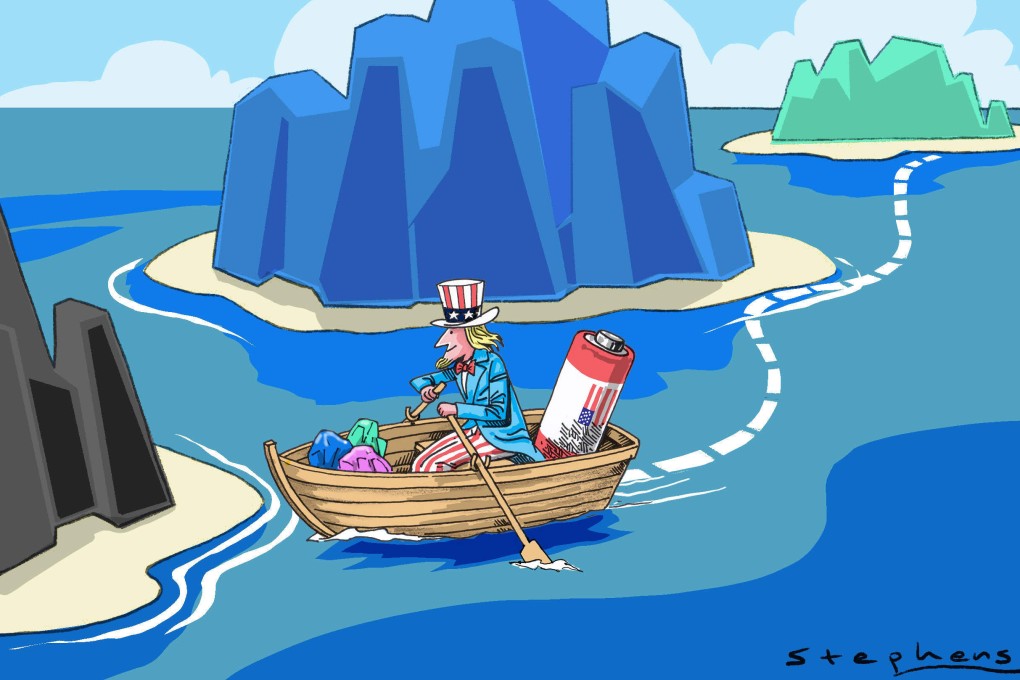Advertisement
Opinion | ‘Friendshoring’ ensures the US is not alone in moving key supply chains away from China
- The list of technologies the US wants to bring closer to home include semiconductors, solar panels and batteries for electric cars
- This goes hand in hand with securing supply chains of critical minerals, such as lithium
Reading Time:3 minutes
Why you can trust SCMP
9

In the first week of October, US President Biden Joe Biden issued new export control regulations on advanced computing chips and other items used in semiconductor manufacturing, in an attempt at kneecapping China’s ambitions of becoming a tech powerhouse. With this measure, competition has transformed into containment.
Aside from strengthening domestic industrial policy through legislation such as the Chips and Science Act and Inflation Reduction Act, the Biden administration is upping the ante on US competition with China through trade and supply chain diversification strategies and export regulations.
As economists and leaders in the corporate world have highlighted, it is not feasible to reshore entire value chains of certain industries. However, overreliance on one supplier can be reduced through diversification. This is where “friendshoring” can play a role.
Advertisement
According to data provider Sentieo, mentions of different forms of “shoring” during company earnings calls are higher than at any other time since 2005, indicating that the decision to relocate supply chains is not just a Washington phenomenon.
Historically, business decisions have been driven by productivity and efficiency parameters rather than by political or even national security concerns. And since China’s accession to the World Trade Organization, that is how globalisation has been practised. If a product, be it a pin or a ship, could be manufactured at a much lower cost in China than in the United States, the manufacturer would move their operations overseas.
Advertisement
However, since Donald Trump’s ascent to the oval office in 2016, it has become abundantly clear that the hollowing out of the US manufacturing industry has created distrust towards Washington in middle America. Understandably, Biden is not interested in changing course.
Advertisement
Select Voice
Select Speed
1.00x
